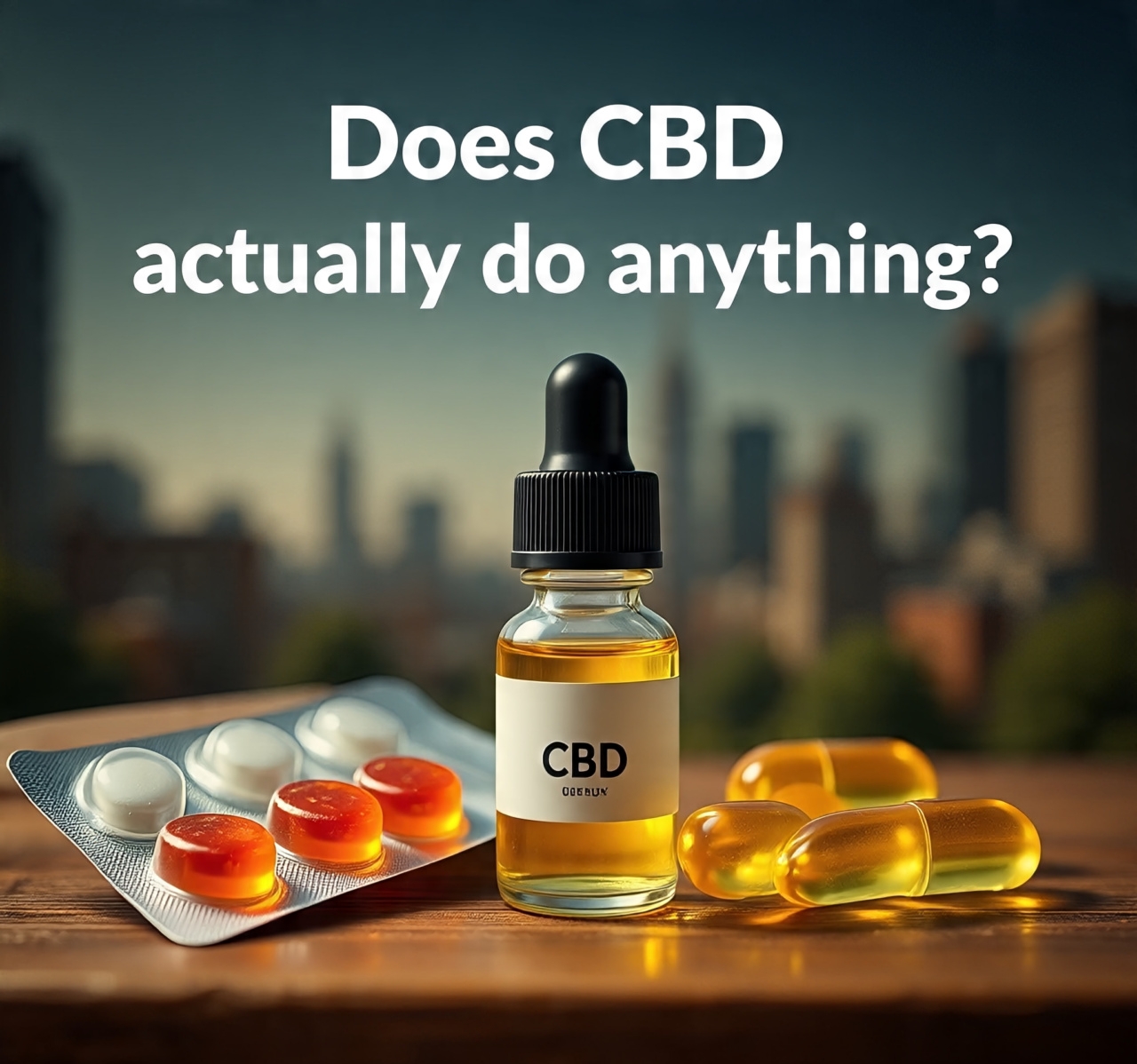DOES CBD ACTUALLY DO ANYTHING?
INTRODUCTION
CBD, or cannabidiol, has exploded in popularity in recent years. Marketed as a natural solution for pain, anxiety, sleep disorders, and more, many consumers wonder: Does CBD actually do anything, or is it just hype? This guide dives into the science, potential benefits, usage methods, legal context, and what you need to know before trying CBD in the UK.
—
WHAT IS CBD?
CANNABIDIOL EXPLAINED
CBD is a non-psychoactive compound derived from the cannabis plant. Unlike THC, the compound responsible for the “high” in marijuana, CBD does not produce intoxication. Instead, it interacts with the endocannabinoid system (ECS), a network in the body responsible for regulating:
Sleep
Mood
Pain perception
Immune function
CBD VS THC
Feature CBD THC
Psychoactive? No Yes
Legal in UK? Yes (if <0.2% THC) No (unless prescribed)
Common Uses Pain, anxiety, inflammation Recreational, appetite, euphoria
—
HOW CBD INTERACTS WITH THE BODY
CBD works indirectly with ECS receptors and may influence other receptor systems in the brain, including serotonin and vanilloid receptors, which affect mood, pain, and inflammation. This is why CBD may have wide-ranging effects, even though research is still emerging.
—
POTENTIAL BENEFITS OF CBD
ANXIETY AND STRESS RELIEF
Studies suggest CBD can reduce anxiety in social situations and generalized anxiety disorder.
Many users report feeling calmer and more focused after taking CBD oil or capsules.
PAIN RELIEF
CBD may help with chronic pain, arthritis, and neuropathic pain.
Works by reducing inflammation and modulating pain signals.
SLEEP SUPPORT
CBD may improve sleep quality for people struggling with insomnia or disturbed sleep.
Effects may be indirect, by reducing anxiety and discomfort.
EPILEPSY
CBD is clinically proven to reduce seizures in rare conditions like Dravet syndrome and Lennox-Gastaut syndrome.
The FDA-approved medicine Epidiolex is a CBD-based drug for these disorders.
ANTI-INFLAMMATORY EFFECTS
CBD shows anti-inflammatory properties which may help autoimmune conditions and localized inflammation.
—
WHAT CBD MIGHT NOT DO
CBD is not a miracle cure.
Limited evidence for:
Weight loss
Depression
Individual responses vary; some people feel strong effects, while others notice little difference.
—
SAFETY AND SIDE EFFECTS
Generally considered safe.
Possible mild side effects:
Fatigue
Diarrhea
Changes in appetite
Drug interactions (especially with blood thinners)
Always consult a doctor if you are on prescription medications.
—
FORMS OF CBD AND USAGE METHODS
OILS AND TINCTURES
Taken under the tongue for fast absorption.
Easy to dose accurately.
CAPSULES AND TABLETS
Slower absorption, but pre-measured doses.
Convenient for daily use.
EDIBLES AND GUMMIES
Discreet and tasty, but effects take longer to kick in.
TOPICALS
Creams or balms applied to the skin for localized pain or inflammation.
Limited systemic absorption.
VAPORIZING
Fast absorption through lungs.
Considered less healthy than oils or edibles due to potential respiratory risks.
—
LEGAL STATUS OF CBD IN THE UK (2025)
CBD is legal in the UK if it contains less than 0.2% THC.
Products must be derived from industrial hemp.
Always buy from reputable, lab-tested brands to ensure safety and compliance.
—
HOW TO CHOOSE THE RIGHT CBD PRODUCT
1. Check THC content – must be under 0.2% for legal use in the UK.
2. Third-party testing – ensures quality and potency.
3. Formulation type – oils, capsules, edibles, or topicals depending on need.
4. Dosage guidance – start low and increase gradually.
—
CONSUMER EXPERIENCE AND REVIEWS
Many users report improved sleep, reduced anxiety, and pain relief.
Some report little to no effect, highlighting that CBD works differently for everyone.
2025 research continues to validate CBD’s therapeutic potential for various conditions.
—
CONCLUSION
CBD does have effects, particularly for anxiety, pain, sleep, and rare epilepsy conditions, but it is not a cure-all. The key to experiencing benefits is:
Choosing high-quality, lab-tested products
Using legal UK-compliant CBD (<0.2% THC)
Starting with a low dose and adjusting gradually




